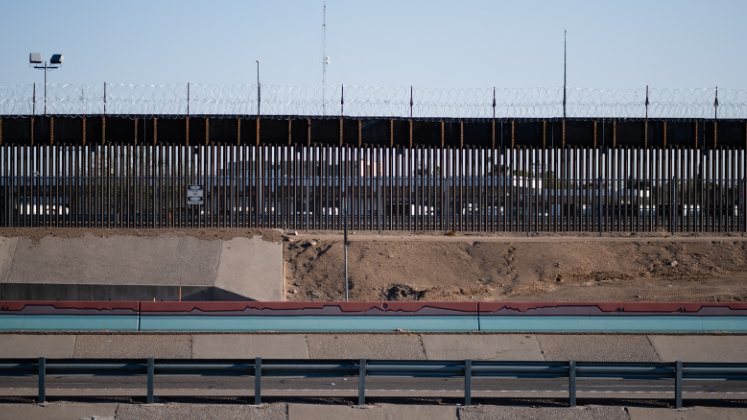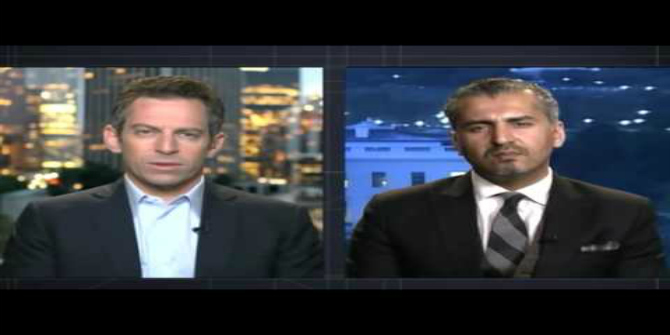
Counter-Terrorism, Aid and Civil Society critically examines the effects of the War on Terror on the relationships between civil society, security and aid, drawing on original fieldwork in Afghanistan, India and Kenya. Volha Piotukh finds that the book makes a valuable and significant contribution to debates on the wars on terrorism and their impact, and on the securitisation of aid and development. The book’s logical structure, clear and engaging writing, wide-ranging sources and impressive level of detail mean that it will appeal to a variety of audiences, from scholars to policy-makers, from students to NGO workers.
 Counter-Terrorism, Aid and Civil Society: Before and After the War on Terror. Jude Howell and Jeremy Lind. Palgrave Macmillan. September 2009.
Counter-Terrorism, Aid and Civil Society: Before and After the War on Terror. Jude Howell and Jeremy Lind. Palgrave Macmillan. September 2009.
I first read this book several years ago on the recommendation of one of the interviewees while researching for a case study on the post-2001 securitisation and militarisation of aid in Afghanistan. I then also read an excellent volume edited by the same authors: Civil Society Under Strain: Counter-Terrorism Policy, Civil Society and Aid Post-2001 (Bloomfield, CT: Kumarian). I have since recommended both books to many of my colleagues and students.
Counter-Terrorism, Aid and Civil Society examines the effects of what the authors call ‘the War on Terror regime’ on development, aid and civil society. Jude Howell and Jeremy Lind argue that this regime “has consolidated and intensified currents in security thinking and practice that incorporate aid and civil society more deeply and strategically” (p. 3). The authors rightly contend that the War on Terror is more than just a political discourse or a specific policy; rather, it is a complex web of multiple actors, institutional arrangements, legal instruments, discourses, policies and practices. The wars on terrorism have indeed produced diverse and profound impacts, many of which are yet to receive the scholarly attention they deserve. Such attention is especially important and timely given that the War on Terror is still on-going, and that it would be both premature and overly optimistic to suggest otherwise. Howell and Lind’s book makes an important contribution in this respect by drawing our attention to the many guises and the entrenched nature of the War on Terror regime.
The book consists of six substantive chapters which can be logically combined to form three distinct, but inter-related, parts. The first part (Chapter 2) outlines the theoretical and conceptual framework informing the project. The second part (Chapters 3 and 4) provides an analysis of the context, which, in this case, is represented by shifts in the relationship between governments and civil society, and that between donors and civil society. Finally, the third part of the book (Chapters 5, 6 and 7) examines the relationship between aid, security and civil society in three different contexts: Afghanistan, Kenya and India.
The book’s subject matter, along with its many strengths, make it an essential read for anyone interested in the changing nature and roles of aid and civil society, profoundly shaped by wars on terrorism. The book productively combines different levels of analysis, which allows it to demonstrate the multifaceted nature of the impact of the War on Terror as far as the aid enterprise and civil society are concerned. This, as well as a range of case studies, also allows for appreciation of the ways in which particular cases are informed by the global developments/shifts, and of the extent to which they are informed by contextual factors. In fact, according to one of the book’s key findings, “[h]ow the War on Terror unfolds varies according to political, economic, historical and social context” (p. 197).
The case studies themselves are based on detailed investigations, which involved extensive fieldwork; this undoubtedly adds to the validity of the arguments, as well as making the discussion rich in detail and engaging. Furthermore, the book’s overall approach benefits from the appreciation of not just the changes, but also the continuities, and their importance in serving as conditions of possibility for subsequent policies and practices. In this respect, the authors succeed in demonstrating that many of the-post 2001 policies and practices would not have been possible without the merging of security and development that took place during the 1990s. In addition, a balanced approach espoused by this study recognises the role of aid agencies in facilitating securitisation of aid, along with failures of civil society to resist the pressure exerted by the War on Terror regime. For example, in the Afghanistan case study the authors justifiably point to “a startling contradiction amongst NGOs in wanting to adhere to the idea of neutrality without recognising how their own actions jeopardise such a stance” (p. 128).
The Afghanistan case study (Chapter 5) is of particular interest for a number of reasons, not least because it is one of few scholarly studies of the relationship between civil society, security and aid in post-2001 Afghanistan which is based on extensive fieldwork. Afghanistan is undoubtedly a paradigmatic case as far as the war on terrorism and aid securitisation in conflict and post-conflict environments are concerned, but it is also a profoundly unique one, challenging existing frameworks of analysis and defying simplistic explanations. Howell and Lind demonstrate a great degree of awareness of the context they are examining and appreciation of both its complexity and significance. This is evident in particular in their appreciation of the fact that instrumentalisation of aid in Afghanistan post-2001 is not new and that it always “was inextricably linked to foreign policy objectives in the region” (p. 106). External influences also played a crucial role in the evolution of civil society, something that the authors convincingly demonstrate by considering such different stages as the cross-border ‘humanitarian’ programmes of the 1980s, the Taliban rule of the 1990s and the post-2001 developments. The emphasis on aid militarisation is also important; however, in this respect, one would expect to see more differentiation between the ways in which specific military strategies (counter-terrorism v. counter-insurgency and stabilisation) informed aid instrumentalisation. Finally, although the study succeeds in accounting for the diversity of humanitarian, development and other civil society actors, the analysis would be strengthened by examining a possible link between their purposes and mandates (e.g., ‘purely’ humanitarian as opposed to multi-mandated), and the existing and possible strategies of resistance to the negative impact of aid securitisation and militarisation.
Overall, the book makes a valuable and significant contribution to many debates, e.g., on the wars on terrorism and their impact, on the securitisation of aid and development, both generally and in specific environments, on the changing role of civil society and its relationship with the state. Its logical structure, clear and engaging writing, wide-ranging sources and impressive level of detail, mean that the book will appeal to a variety of audiences, from scholars to policy-makers, from students to NGO workers.
——————————————————–
Volha Piotukh holds a BA in Law, an MA in International Politics (Manchester University) and a PhD in Politics and International Studies (Leeds University). Before coming to the UK, she lectured in Public International Law and worked as a civil servant (Legal Advisor). In the UK, she has taught at the Universities of Leeds and Westminster. She is currently a Teaching Fellow in Human Rights at UCL and a Postdoctoral Research Associate at the University of Durham. She is also working on several publications based on her doctoral research. Her research interests include: humanitarian action and its evolution, in particular securitisation and militarisation of aid, and Foucault’s theorising on power, in particular on biopolitics and governmentality, and its applications, including politics of expertise and biopolitics of risk and security. Read more reviews by Volha.







